- Home
- Perrin Briar
Sink: Old Man's Tale Page 2
Sink: Old Man's Tale Read online
Page 2
Fatty calmly took an envelope from his inside jacket pocket and offered it to him. Jeremiah backed away from the letter like it contained the plague, turned, and slammed the door in Fatty’s face. It came so close to his nose he rocked slightly back on his heels.
“We’re going to get your property, Mr. Witness,” Fatty said on the other side of the door. “It’s only a matter of time. You’re better served accepting our proposal or risk losing out on the offer of a lifetime.”
The envelope slid under the door. Jeremiah ignored it.
“We tried,” Fatty said. “Let’s get back to town. I’m going to need a tetanus shot.”
Chapter Three
The sight of the old man had made Graham start. At first he thought they must have gotten the wrong address, or Jeremiah had moved without informing them. This man could clearly not have been the Jeremiah he knew from childhood. And yet, there was a likeness there, a familiarity with the shape of the face and eyes. The features had fallen, become soft and haggard, his ears had doubled in size, and though he could never have been described as a handsome man, now Jeremiah looked like an extra from a Lord of the Rings film.
And when he opened his mouth, curved and round like a creature from a horror story, his eyes wide, bloodshot and yellowed, a spring of profanity escaped the likes of which Graham had never heard. He screamed and shouted at them in heavily nuanced words that even Graham, with a background in this area, couldn’t understand. And once he was finished, Mr. Pearson had smiled as if Mr. Witness hadn’t spoken at all, and dealt the deciding blow.
Graham would have shaken his head if he’d had the nerve. When Jeremiah admitted he’d indeed received their letters, the old man had unknowingly signed his death warrant. That was the greatest weapon in the property developer’s arsenal: ignorance.
It wasn’t even really their fault. People tended to concentrate on learning what affected them in their daily lives rather than things they found boring or tedious. The law was something people generally followed, not studied. If they had, they would have discovered a world not of black and white, but of the greys of a million different hues. By confirming he had received the letters, the old man had also confirmed he had taken no action. He was at the court’s mercy, and it most likely would not be in his favor.
Mr. Pearson slowed the car at the junction that joined the motorway. The car stopped.
“Get out,” Mr. Pearson said.
For a moment, Graham wasn’t sure who he was talking to.
“Me?” Graham said.
“Of course you,” Mr. Pearson said.
“What for?” Graham said.
“These are your people,” Mr. Pearson said. “It’s your job to convince him to hand his property over to us.”
“But he told us he received the letters,” Graham said. “We can hang him with that.”
“We’ll need to go through the courts,” Mr. Pearson said. “We need faster results.”
“How am I supposed to do that?” Graham said. “He won’t listen to me.”
“Then make him listen to you,” Mr. Pearson said. “And don’t bother coming back until you have those deeds.”
“Possessing the deeds doesn’t make us the property owners,” Graham said.
“No, but dear old Mr. Witness neglected to register his property with the authorities,” Mr. Pearson said. “Without the deeds he’ll have a harder time proving he’s the owner. The perfect time for us to take it from him.”
“You can’t do this,” Graham said.
“No?” Mr. Pearson said. “That’s funny. I think I just did.”
Mr. Pearson was serious. Graham looked to Dwayne, but he was looking away. Graham hesitated before getting out of the car.
“Dwayne, join me upfront,” Mr. Pearson said.
Dwayne got out and sat in the front passenger seat. His kept his eyes on the ground, pointedly not looking at Graham.
“You know I don’t like you,” Mr. Pearson said to Graham. “Why else did you think I brought you on this trip?”
He hit the gas and the wheels spun, kicking up dust, coating Graham. He coughed and watched as the car pulled away and disappeared over the horizon. He listened to the jabberings of the crickets and grasshoppers in the undergrowth before pulling his head back and letting out a scream. He kicked at a tuft of grass, swearing, performing a reenactment of Jeremiah’s tirade.
The motorway was silent, the way it often was in Australia. There were no cars and the chances of hitching a lift were significantly less than the possibility of getting bitten by a poisonous snake, even after his boss had cleared the way.
He turned to look back at the dusty road that led back to Jeremiah’s house. Jeremiah had a car. Maybe he could get a lift. He almost laughed. Maybe he could borrow Jeremiah’s car, just to town, and then call the cops and let them know where the car was so the old man could get it back. That wasn’t so bad, was it?
Graham walked up the road toward Jeremiah’s house. He turned the puzzle of the deeds over in his mind. How would he get them? Could he get them without the old man knowing?
Graham paused. He shook his head. He never even questioned whether or not he would try to get them, only how to get them. Mr. Pearson was an asshole, a bigot, a sexist, and arrogant beyond belief, but he sure was a formidable judge of character.
Chapter Four
The kettle whistled, a high-pitched whine that would have made Jeremiah’s ears hurt, except he was too busy looking out the kitchen window at his back garden to notice. The muscles in his arms were tight. He was still bubbling with rage. He shook his head. What gave them the right to try and take his home away? It was all he had. And suddenly he felt weak and tired to his bones.
Something wet pressed against his forehead. He reached up and touched it. His fingertips came away damp, and when he turned, he saw the kettle was still bubbling away. He switched the hob off and poured the hot water into his single chipped cup. There was just a dribble left. He refilled the kettle and boiled it again. His mind wandered. He became calm, but resolute. He would not let them take his house away from him. Ever.
He opened the fridge door. Seven plates sat on the shelves. Five had identical sandwiches on them. Two were empty. It must have been a Wednesday. He ate the same corned beef sandwiches every day. He’d gotten sick of them a long time since, but when he thought about what else he had to eat and the effort it would take to make something new, he gave up. An engine needed fuel. It didn’t matter the quality. His taste buds had long since given out, so he couldn’t taste the food anyway. That was his life. Tasteless. Without flavor.
The only real interior design he had were model airplanes hanging from the ceiling on metal wires, in the midst of a dogfight. The planes were German Messerschmitts and British Spitfires, a reenactment of the Battle of Britain, to Jeremiah’s eye the most important battle of the twentieth century.
Jeremiah picked up a photograph frame and touched the glass. The final few dregs of pent-up aggression left him. A smile came to his lips. Those were good times. He caught sight of his reflection, of the deep ridges in his forehead. He angled the frame away so he couldn’t see himself.
He looked through the dirty kitchen window again at the eucalyptus tree perched on the far corner of his property. It stretched for the sky, its foliage bent to one side by the harsh winds, looking like something that belonged in a Poe poem.
Jeremiah picked up his tea and sandwiches and exited through the backdoor.
Chapter Five
When Graham got within view of the decrepit old house he turned and headed at a right-angle away from it. Nighttime was already descending, the heat dissipating, the red of the Outback fading into a deep sapphire blue. He tucked his hands in his pockets and raised the collar of his coat.
The old fart came out of his house and headed toward the far corner of his land, toward a tall eucalyptus tree. He sat underneath it on a branch that jutted out at a right angle, like an arm trying to pull itself out of the ground,
and looked toward the empty flatlands of the Outback, stretching into the distance in all directions.
He could see Jeremiah’s lips were moving, his head nodding. Crazy old loon. He would be better off in an old people’s home if he had any sense.
Graham turned to the house. It couldn’t be counted as breaking and entering if he entered without breaking anything, right? He’d visited the house enough in his youth to remember the layout. It wasn’t a large house and it couldn’t have changed that much over the years. There had clearly been no extensions or renovations.
Graham approached the front door, not visible from Jeremiah’s vantage point. Was it just his imagination or had the crack up the side of the wall gotten larger? It was thick and almost reached to the roof now. Graham shrugged. What were the chances it would collapse right this moment after all these years? He turned the door knob, but it didn’t open.
A fuzzy scrap of wood stuck out of the wall like an unkempt hairdo. He pulled at the splinters and found a small hole. It wasn’t big, but then Graham didn’t have the biggest hands. He pressed his fingers together and pushed them through the opening. His hand got stuck. He pressed harder and there was a soft crack, like the crunch of damp wood. Around his wrist was a bracelet of rotten wood. He angled his arm down, reaching for the door knob. He went up onto his toes and touched it with his fingertips. He stretched a little further and felt the key. He turned it, and the lock clicked open.
He pushed the door open. It squeaked on old hinges. He stepped inside and closed the door, leaving it unlocked in case he needed to make a quick getaway. He took his rotten wood bracelet off and pressed it back into the wall. So much for not-breaking and entering.
He turned and looked at the house’s interior. His eyes widened. He hadn’t thought this through.
Chapter Six
The house’s interior was as damaged and changed as Jeremiah’s exterior. Graham wouldn’t have recognized the place if it wasn’t for the fact he’d just walked through the front door.
Newspaper towers were lined up against two walls. Some leaned over and would have fallen if another tower hadn’t propped it up. Paths wound through the detritus like wild animal trails in a forest.
Model airplanes hung from the ceiling. Some had a thick layer of dust on them, others spotless, having been recently installed. The paintwork was exceptional, performed by a steady hand, the pieces interlocking clearly and distinctly. Even the pilots had faces, screwed up in concentration, hands gripping their airplane controls tight.
Only a few workspaces were not covered, and these, Graham suspected, were the areas Jeremiah most often spent his time. The wingback armchair had a vague outline of where the old man would sit for the night, a small bar heater at its feet. A small patio table was used as a dining table. It was damaged, chipped and worn. One of the legs had snapped off and hastily fixed by shoving books underneath it, propping it up. One knife, one fork, one small and medium-sized plate. The hallmarks of a bachelor. Despite the mess there was no dirt on the furniture. It was well-maintained, if not tidy.
Out the kitchen window, the eucalyptus tree was cast in silhouette by the setting sun. Jeremiah was still sat on the tree root, head bowed down and forlorn.
Graham cast an eye over the space. There was a cupboard, a wardrobe and a cabinet. He ruled out the wardrobe and cupboard and headed for the glass-fronted cabinet in the corner. If he lived here, it was the place he would most likely put any important documents.
He pulled the front door open. A shelf of paper and cards, memoirs of a former life, spilled from the inside. There was the fusty smell of dead skin and old paper. A library for the old. Jeremiah was living in a scrapbook.
Graham picked up the fallen pieces of paper and glanced at each one. Some were grocery lists, yellowed with age, others random phone numbers, old bills and receipts. Graham piled them up to one side while he sorted through the rest.
He sensed someone looking at him. Through the glass side panels of the cabinet were photo frames of a smiling happy family, windows into a world, a bubble, that no longer existed, fading like a burning tree, brightly for a fragile moment before turning to ash. That was the space Jeremiah existed in now, a bubble, an echo of the moments of the past, and though he existed inside it, it would end with him. No one would remember him, until one day the wrecking ball came to demolish the house and remove the body of the impediment to the development project they were working on. That would be how Jeremiah Witness would be remembered. A blockage to development, a remnant of a world that no longer existed.
Graham caught movement out the corner of his eye. Jeremiah was heading back to the house.
Graham didn’t panic. Jeremiah was moving slowly enough for Graham to consider his options. Leave now, grab the car keys that hung from a hook on the cabinet, or stay and hide, waiting for the right time to continue his search.
Though Graham hated to admit it, he needed his job, and as much as he hated his boss, times were tough in finding a well-paying position.
He was spoilt for choice regarding hiding places. The question was, where? He crouched in a corner behind two piles of old newspapers, within easy access of the front door, and peered out from between them.
The backdoor slammed shut. Jeremiah grumbled to himself under his breath as he came into the front room. Graham could make out some words, but most were indistinguishable. Was he insane? How could he not be, locked up in here by himself for the past God knew how many years.
Jeremiah fell into his armchair, shuffled his shoulders, getting deep into the fabric. He turned the radio on and listened to a show. Graham didn’t think he’d heard old music like that since he was a boy and watched black and white movies. Within moments heavy snoring rattled from the old man’s nose and throat like a cartoon sound effect.
Great, Graham thought. Now what am I supposed to do?
He sat up and peered over the newspapers at the armchair. Jeremiah lay with his head tilted back, restrained in one of the loping crannies on the top. He snorted as he slept, body lying like it had been filleted.
Graham swallowed. If he was going to leave, now was his chance. He glanced at the door. He could sneak across the room, open the door, and get away… But what about the papers? How was he going to get them? He’d have to return another time… Except he was never going to get a better opportunity than right now. He couldn’t search with the old man laying the way he was. He might be a heavy sleeper but he couldn’t risk him waking. His only hope was to get the old man to go to his bedroom. He could sleep deep and sound, leaving Graham to search the decrepit house to his heart’s content – not that it made his heart content.
He reached for one of the old newspapers. He laid it down and unfolded it. Then he scrunched it up. He stopped, flinching at the loud sound. He waited a second. The old man hadn’t moved a muscle and was still fast asleep.
Graham drew his arm back and threw the ball. It fell short and didn’t make it to the old man. He balled up another page and took aim. This time, it sailed through the air and struck the armrest of the old man’s chair. He rolled up another newspaper ball and let it fly. This one struck the old man on the forehead.
Jeremiah bolted forward, sitting up. He seemed to stare at the newspaper ball in his lap, and for a second Graham thought he was scuppered. It wouldn’t take long for the old man to find him crouched as he was. He coiled his legs to spring up at the front door. He waited as the old man blinked his yellow eyes and got to his feet with great difficulty.
Jeremiah stumbled forward on his large bulbous feet, the paper ball falling from his lap. He stepped on it as he headed out of the room and in the direction of his bedroom. With his gaunt expression and the juddering way he moved he was the closest thing to the living dead Graham had ever seen. He waited, watching as the old man slid along the corridor. There was the heavy squeak of springs as he fell into his bed.
Graham waited a moment. He rose above the newspaper Tower of Pisa and crept across the room, stepping
in front of the corridor. The old man’s feet stuck out the end of his bed. Graham relaxed, just a little.
He turned to the front room. He could run away, leaving, and never come back, and he would never need to remember this moment in his life ever again, and that was certainly what he should do… Instead, he found himself stepping toward the cupboard.
He pulled the first drawer open. A few small paint pots and screws rolled into a corner. Graham picked up a sheaf of papers and read through each one. Nothing. There was a photo album. He hesitated before he picked it up. Graham enjoyed photos, looking at the pictures and making up his own stories about the people and places. It would be a time sink unless he focused and pushed himself to just skim through the images, but the moment he opened the album he was enrapt.
The first picture had an image of him in it. It showed him with Jeremiah’s son Stuart. They had smiley faces. Graham sat in a wheelbarrow, Stuart holding the handles.
He turned the thick pages, going back in time. The photos were not arranged in any particular order. Now they were of a wedding. Judging by the hairstyles, circa 1965. Happy faces and broad grins. Graham wondered where those people were now. In the ground, probably, he thought.
Graham paused. What if he did find the deeds? What would possessing them mean? They would mean the project would be greenlighted and they could evict the old man. Even if he claimed ownership of the land there was still a lengthy legal process. They would begin work on the land in the meanwhile. If Jeremiah’s home were to be knocked down by accident, well, that would just be bad luck.
Did it change anything that he knew Jeremiah? That he had spent part of his youth here, under his roof? Eaten his food and played with his son? Working in the property business meant you were supposed to leave your morals at the door, or else you’d find your resume posted to it. You couldn’t afford to make those kinds of decisions when you were in business.

 Sink: Once Upon A Time
Sink: Once Upon A Time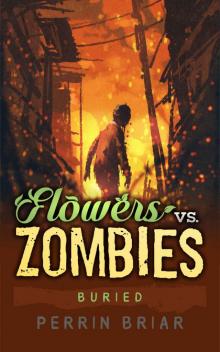 Flowers Vs. Zombies (Book 5) Buried
Flowers Vs. Zombies (Book 5) Buried Flowers Vs. Zombies (Book 6) Native
Flowers Vs. Zombies (Book 6) Native Z-Minus Box Set 2
Z-Minus Box Set 2 Skip: An Epic Science Fiction Fantasy Adventure Series (Book 2)
Skip: An Epic Science Fiction Fantasy Adventure Series (Book 2) Resistance (Book 1): Juvenile
Resistance (Book 1): Juvenile Blood Memory: A Post-Apocalypse Series (Book Five)
Blood Memory: A Post-Apocalypse Series (Book Five) Sink: The Lost World
Sink: The Lost World![Z-Minus Box Set [Books 1-3] Read online](http://i1.bookreadfree.com/i1/03/30/z-minus_box_set_books_1-3_preview.jpg) Z-Minus Box Set [Books 1-3]
Z-Minus Box Set [Books 1-3] Compulsion
Compulsion The Swiss Family RobinZOM (Book 3)
The Swiss Family RobinZOM (Book 3) Sink: The Complete Series
Sink: The Complete Series Expulsion
Expulsion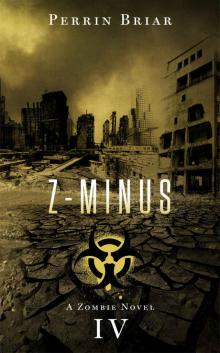 Z-Minus (Book 4)
Z-Minus (Book 4) Resistant Box Set
Resistant Box Set The Swiss Family RobinZOM (Book 2)
The Swiss Family RobinZOM (Book 2) The Swiss Family RobinZOM (Book 5)
The Swiss Family RobinZOM (Book 5)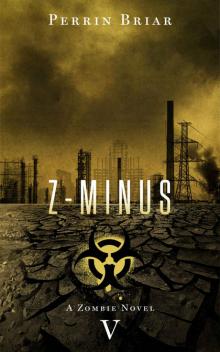 Z-Minus (Book 5)
Z-Minus (Book 5) Resistance (Book 2): Resistant
Resistance (Book 2): Resistant Blood Memory: The Complete Season One (Books 1-5)
Blood Memory: The Complete Season One (Books 1-5) Blood Memory (Season 1): Books 1-5
Blood Memory (Season 1): Books 1-5 Flowers Vs. Zombies: The Complete Series
Flowers Vs. Zombies: The Complete Series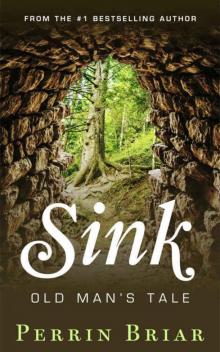 Sink: Old Man's Tale
Sink: Old Man's Tale![Cut Off [Part 1] Read online](http://i1.bookreadfree.com/i2/04/06/cut_off_part_1_preview.jpg) Cut Off [Part 1]
Cut Off [Part 1] Flowers vs. Zombies (Book 2): Vagrant
Flowers vs. Zombies (Book 2): Vagrant The Swiss Family RobinZOM (Book 4)
The Swiss Family RobinZOM (Book 4)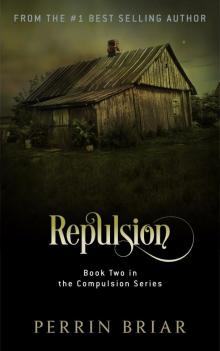 Repulsion (Compulsion Book 2)
Repulsion (Compulsion Book 2) Skip: An Epic Science Fiction Fantasy Adventure Series (Book 3)
Skip: An Epic Science Fiction Fantasy Adventure Series (Book 3) The Swiss Family RobinZOM
The Swiss Family RobinZOM Z-Minus (Book 6)
Z-Minus (Book 6) Flowers vs. Zombies (Book 4): Exigency
Flowers vs. Zombies (Book 4): Exigency![[An Epic Fantasy 01.0] Skip Read online](http://i1.bookreadfree.com/i2/04/12/an_epic_fantasy_01_0_skip_preview.jpg) [An Epic Fantasy 01.0] Skip
[An Epic Fantasy 01.0] Skip Flowers Vs. Zombies: Genesis
Flowers Vs. Zombies: Genesis